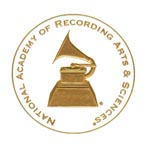
Photo: Justin Ho-Wee Wong Georgia Apostille obtaining certified copies, translating Your documents, Georgia apostille.
The family of teenager Alison Chang has sued Virgin Mobile and Creative Commons. Virgin Mobile launched an ad campaign in Australia this summer using Flickr photos licensed under creative commons. A photo of Ms. Chang taken by her youth counselor was used without her knowledge or consent, and her family is seeking undisclosed damages for libel and invasion of privacy.
It is unclear under what grounds Creative Commons has been brought into this suit. The primary issues in this case relate to right of privacy, right of publicity, and defamation. Creative Commons has merely supplied Flickr and the artist with valid contract language which allows the artist to release some of his rights. The Creative Commons copyright license does not explicitly deal with all factors that Virgin Mobile should have taken into consideration before using a cc-licensed photograph in a large scale commercial campaign. Additionally, Creative Commons was aware of these issues, and published a blog post in July 2007 pointing out possible problems with Virgin Mobile’s campaign (see below).
Although it is unclear at this point whether the responsibility to secure model release forms allowing commercial use lies with Virgin Mobile or the photographer who chose to put the photo under an attribution-only license. In choosing an attribution-only license, the photographer may have been making an implicit statement that his work was suitable for commercial purposes. In this case, the photographer is one of the claimants against Creative Commons and Virgin Mobile when it appears that he could have been making a mistake in applying a license without understanding it.
The primary legal claim in this case is one of the right of publicity. Simply put, this right is the inherent right of every human being to control the commercial use of his or her identity.1 The right of publicity is a state-law tort claim similar to unfair competition.
Copyright and other similar rights like right of publicity have created a dizzying tapestry of almost incomprehensible laws that apply to every image or work in our multimedia digital culture. Creative commons has created a system for allowing authors to opt out of some of these rights. The attribution only license is often used by artists who wish to have their work used in a commercial manner to increase their reputation and visibility. Virgin Mobile was attempting to rely on the photographer’s statement that this work was available for use with mere attribution and is now becoming the target of overzealous intellectual property protections that were created before the current information age.
Two excellent blog posts have been written on this topic in Australian blogs:
Virgin Australia and Creative Commons Named in Lawsuit
CC and Virgin Mobile
1Taken from The Right of Publicity and Privacy by J. Thomas McCarthy.
This post is by Brian Rowe and Sarah Davies


